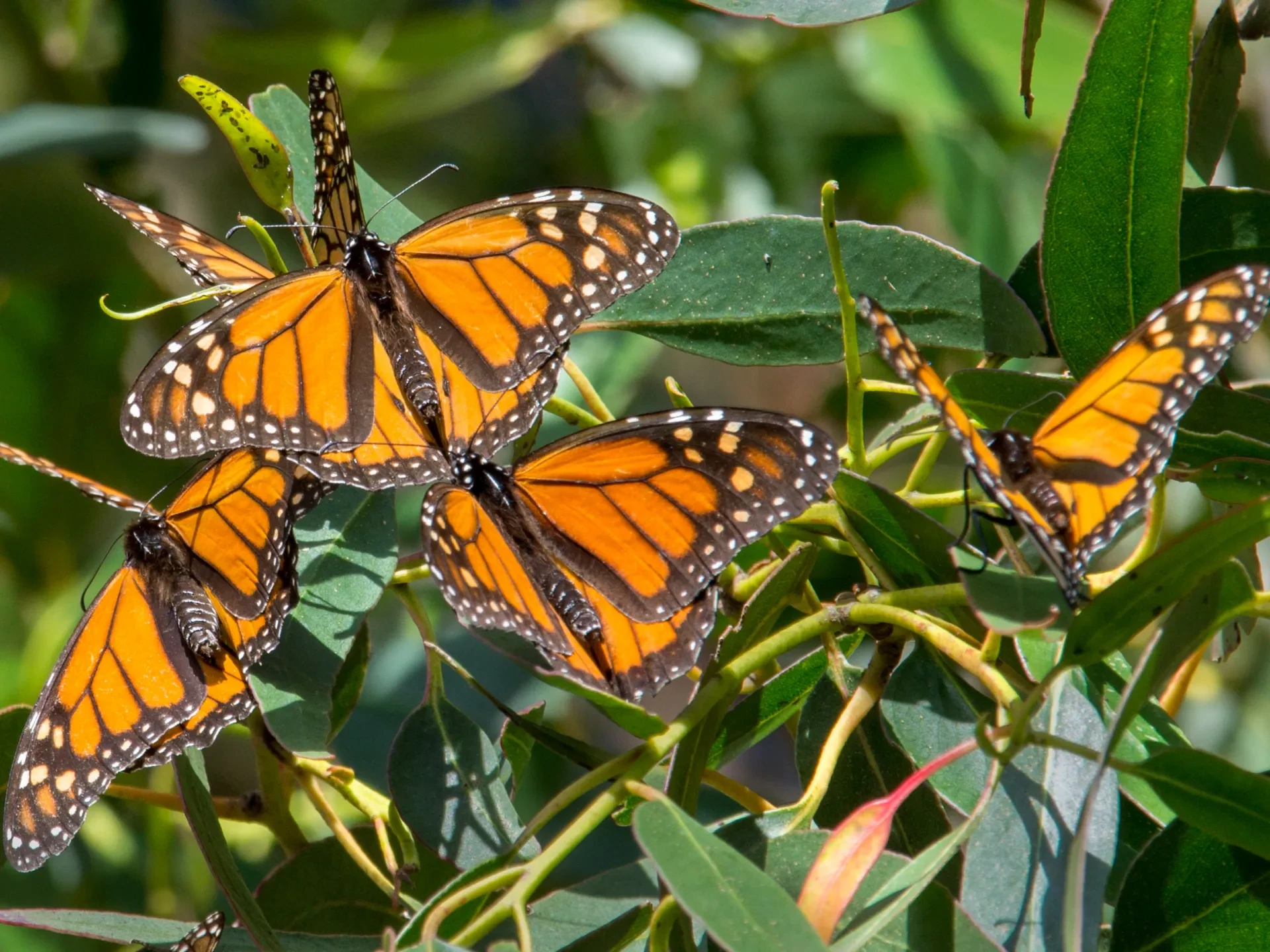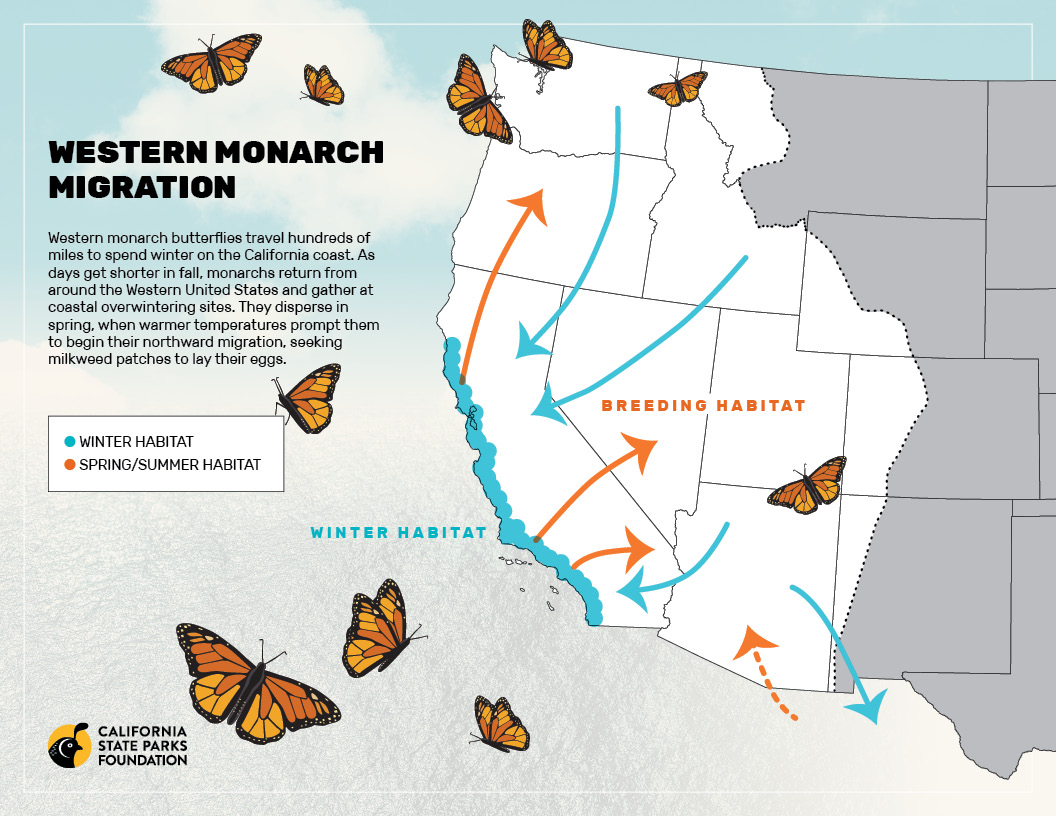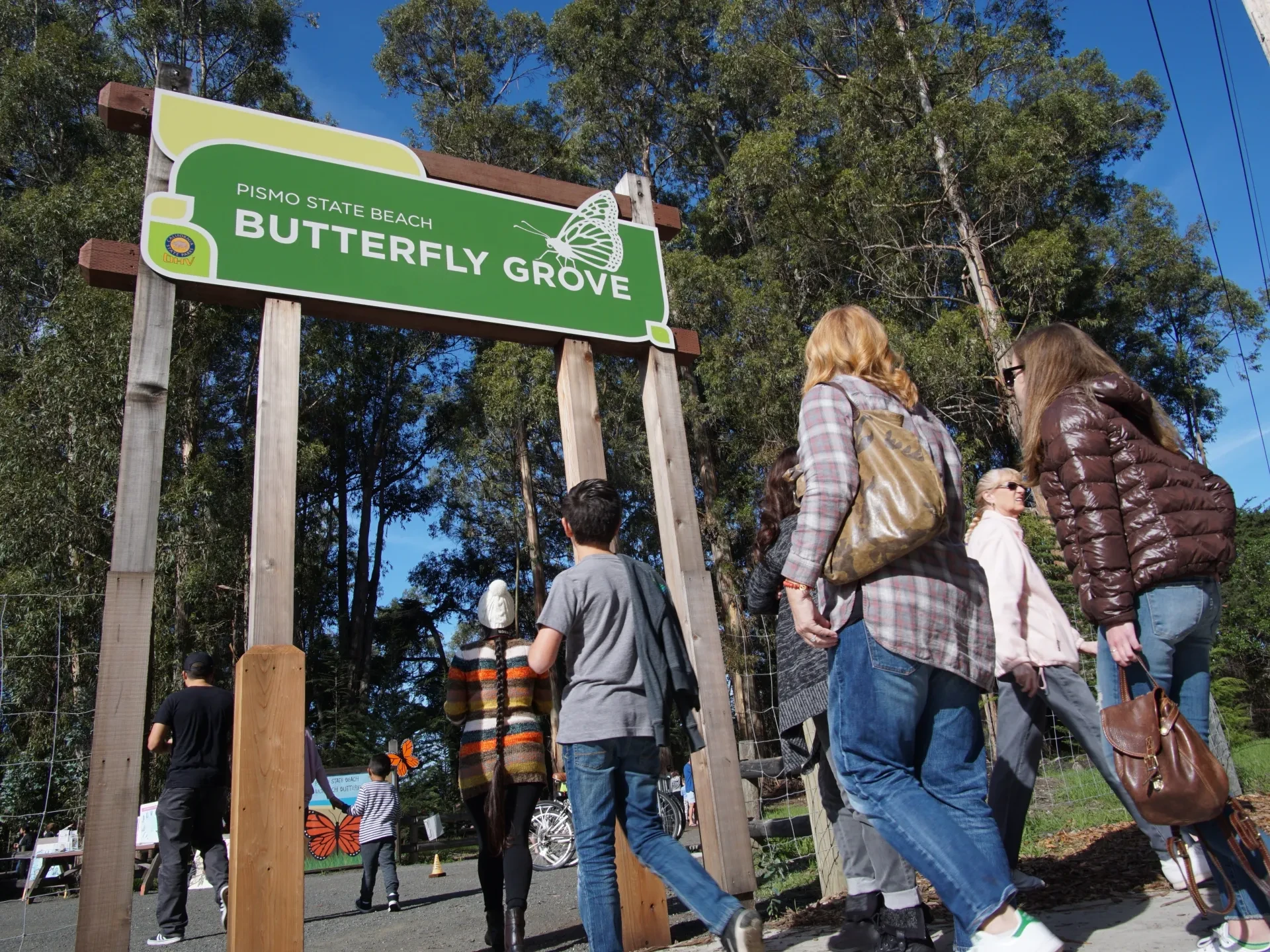This fall, California State Parks Foundation will continue to support one of our most beloved species — the western monarch butterfly. Through our 2024 Monarch Conservation Grant, California State Parks Foundation is partnering with the Central Coast State Parks Association (CCSPA) on a major overwintering grove restoration project at Pismo State Beach. Over 100,000 visitors travel to Pismo State Beach every year to see roosting monarchs, and last year, the site hosted the second-highest number of monarchs out of all overwintering sites in California. By providing $25,000 in grant funding to CCSPA, California State Parks Foundation is working to protect critical monarch habitat and ensure that visitors can continue to safely witness the splendor of the western monarch butterfly.
What are overwintering groves and why are they so important?
Western monarchs used to number in the millions, but the population has plummeted since the 1990s due to development, pesticide use, and habitat deterioration — particularly at overwintering sites. Every year, monarchs return from their northward migration to specific locations along the California coast that contain the optimal conditions for monarchs to pass the winter. This includes protection from the cold and wind, available water, dappled sunlight, and access to nectar sources. Throughout the winter months, monarchs spend their time in diapause — a state of suspended development — sunning themselves and feeding on nectar before starting their migration anew at the end of the season.
Because overwintering habitat is so unique, monarchs largely return to the same sites every year, many of which are in California state parks. In fact, California State Parks is the largest single land manager of monarch overwintering sites in the state. As such, California State Parks and California State Parks Foundation can play a central role in protecting the western monarch butterfly by protecting this habitat while ensuring optimal viewing opportunities for beach visitors.
Improving the visitor experience at Pismo State Beach
To protect the Pismo State Beach Monarch Butterfly Grove, CCSPA will complete significant restoration work beginning later this year. A critical aspect of this project is ensuring that visitors can access the site safely, including replacing fencing along walkways.
Proper fencing not only protects sensitive habitat, but it also provides stability for visitors with mobility impairments along the pathway. Unfortunately, the aged fencing at Pismo State Beach requires excessive repair to perform this function. Therefore, CCSPA will use the $25,000 to replace damaged fencing around high-priority areas of the overwintering grove. The more stable fencing will also support five interpretive panels to teach visitors about the western monarch butterfly, such as its unique multi-generational migration, anatomy, life cycle, and more.
“Central Coast State Parks Association and Ocean Dunes Districts are honored and excited to put these grant funds to use to protect the western monarch and its habitat,” said Sierra Emrick, Executive Director of CCSPA. “Funds ensure the Grove remains accessible and a powerhouse for education on the species.”
A multi-benefit project: Building for the future
CCSPA’s work at Pismo State Beach highlights the importance of multi-benefit projects and the breadth of goals they can accomplish. Maintaining state parks means not only protecting our natural resources, but also ensuring all Californians can access and learn about nature. With this one project, CCSPA and California State Parks Foundation will both protect an important ecosystem and teach visitors about one of California’s famous species, perhaps contributing to the next generation of conservationists.
The Pismo State Beach project also exemplifies a forward-thinking approach to deferred maintenance in state parks. Deferred maintenance refers to a backlog of projects that need to be completed in parks, such as repairing infrastructure. However, deferred maintenance can no longer mean just rebuilding as it was; it requires looking forward to rebuild strategically. With this approach, CCSPA will be replacing the damaged wooden fencing with aluminum fencing that is more durable and will require less-frequent repairs. In the long run, this change will save staff time and funds, ensuring that the grove will remain free for the public and, therefore, accessible for lower-income communities.
Working through partnerships
California State Parks Foundation is committed to preserving California’s extraordinary biodiversity, including species like the western monarch butterfly. By working with park partners like Central Coast State Parks Association, we know that we can make an even greater difference in conservation. To learn more about ongoing partnerships, read about our current Building Climate-Resilient State Parks Grant, where we’re working with partners across the state to help preserve our state parks for future generations.


